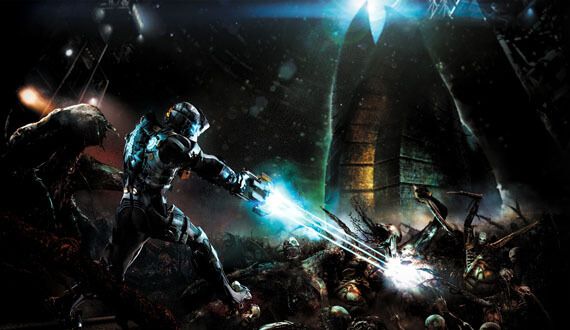Dead Space 2 is quickly becoming a favorite among horror game fans, as it greatly improves upon the massively popular original in more than a few ways. A key part of the lore is the fanatical religion known as 'Unitology,' whose followers worship the mysterious 'Marker' as an artifact capable of explaining humanity's origins. Many fans of the series have tried to draw parallel between Unitology and Scientology, citing the fact that they both:
- Have origins based in science
- Feature prominent figures from their respective societies
- Disseminate information to members based on their rank within the church
- Require that members donate large amounts of their wealth to the religion
MTV recently sat down with Dead Space 2's Creative Director Wright Bagwell in an attempt to silence the discussion once and for all by asking him about Unitology and its alleged links to Scientology.
Bagwell was clear that the game's story may be written with connections to things beyond science fiction, but it's certainly not a moral or political statement:
"We never really approach that discussion with the intention of poking fun at a particular religion, or sort of making a social statement about something that's going on right now. For us, Unitology's purpose in the story represents people's illogical thinking about things they don't understand. It was never really intended to be a jab at any particular religion. I know people have said, 'Oh yeah, it's a jab at Scientology.' It was never really intended. I think people get that a lot because the name is very similar."
Indeed the '-ology' ending does put them phonetically in the same boat, but Wright maintained that its not where the inspiration for Unitology came from:
"What I find really interesting is a book by Carl Sagan called 'The Demon-Haunted World.' It's a great book and just a commentary on how there's this pattern of behavior over history where there used to be a lot of superstitious and illogical thinking. And then, as science took hold and modern thinking took hold, there was a lot less superstitious thinking. But now that people are not able to understand everything around them again, technology has gotten to the point where it's like magic to some people, and they're overwhelmed with the amount of knowledge and information that's out there. It's gotten people thinking illogically and superstitiously again. That's the commentary we're making. In this complex, futuristic world, people are looking for ways to simplify their lives and put their faith in something that they don't have to think too much about."
Perhaps gamers have been taking a look at this from the wrong angle. They've been picking on Scientology because both religions share a common suffix, when it seems like Wright was actually trying to be as indiscriminate as possible. A lot of the important characteristics of Unitology are also present in Catholicism. A hierarchical church structure? Check. Prominent members of society are members of the church? Check. Members of the church are encouraged to donate to the church? Check.
When you truly look at the basic tenets, it's easy to see that the parallels could've been drawn with any religion. Unitology from this perspective may just be a social commentary on all religion, and how patrons seem to be drawn to religion as a means of explaining things that can be rationalized, but are simply not understood.
In terms of the game, this shows through in how the Unitologists percieve the Marker. They don't understand it any more than Isaac does, but they've attributed a lot of religious belief to its purpose, and somewhat accurately. After all, the thing does indeed bring them unity and a life after death. The truth, while not much less extraordinary, is much less mystical.
Dead Space 2 is out now for PC, PS3, and Xbox 360. We braved The Sprawl so that you could know whether or not it was worth exploring in our review of the game.
With an issue as potentially charged as this one, we want to know: what do you think about the parallels drawn between Unitology and real-world religions?
Source: MTV

